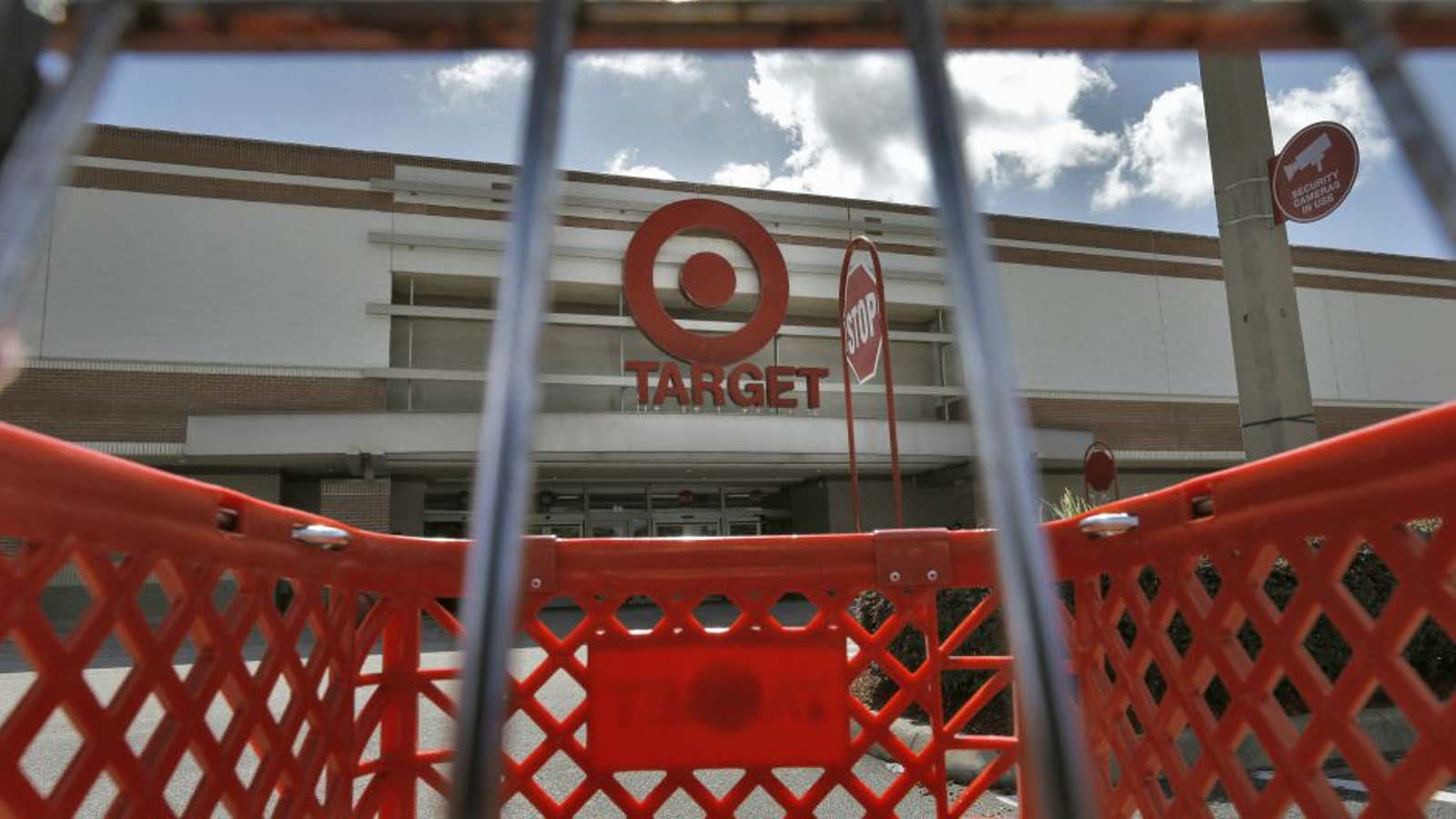Target is leaving Canada.
The cheap-chic retailer’s first and only foray into international territory ended with a whimper today (Jan. 15), underscoring the difficulties companies face when trying to export their strategies around the globe. Brian Cornell, who took the helm at the struggling US retailer last year, said he was ”unable to find a realistic scenario that would get Target Canada to profitability until at least 2021″ and that it would discontinue operations at 133 stores across the country. Originally, it had said its Canadian operations would be profitable by 2013.
Part of Target’s problem in Canada was that it didn’t live up to expectations of Canadian consumers who had visited Target stores in the US and were looking forward to getting things like Cherry Coke, s’mores-flavored Goldfish crackers and peanut butter M&Ms across the border at discount prices. (Cherry Coke isn’t available at all in Canada, according to a Target spokeswoman.) Target also failed to right its technology and supply-chain operations, which often resulted in empty shelves and disheveled stores.
Target is hardly alone with its failed overseas exploits. Wal-Mart exited Germany and South Korea after it found its big-box formula didn’t fit local tastes there, and in 2013 it curtailed plans to open grocery stores in India, where it tangled with foreign-investment regulations. British retailer Tesco attempted a US growth strategy, but its house brands and ready-to-serve meals that are commonplace in the UK failed to excite brand-conscious American shoppers, and the supermarket chain promptly sold off its US operations.
Other retailers have found a way to make global operations work. German discounter Aldi has been blazing ahead in the UK, US, and a dozen more countries with its Aldi and Trader Joe’s stores, and fast-fashion brands like Japanese-owned Uniqlo, Sweden’s H&M, and Spain’s Zara have resonated worldwide.
